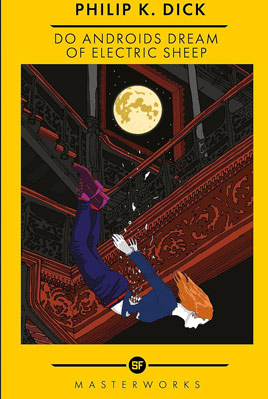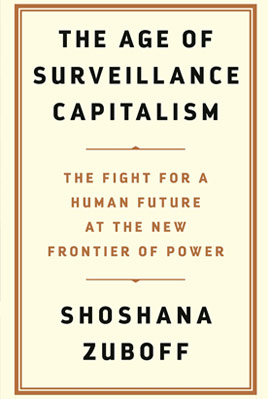John Morison
Constitutional Law and Theory, New Technology
Law and the Challenges of Technology
One of the bigger challenges facing everyone today is the impact across almost every aspect of our lives of new information and communication technologies, including particularly algorithms and Artificial Intelligence (AI). Lawyers are at the forefront of these new challenges, attempting to understand their impact on our rights and freedoms, and how the big technology companies should be regulated.
How new technologies impact on our lives:
Classic dystopian accounts of the future can be found in both the original Blade Runner from 1982 and the sequel Blade Runner 2049 released in 2017. Based loosely on Philip K Dick’s novel, Do Androids Dream of Electric Sheep (first published in 1968), these cyberpunk, sc-fi classics depict the problems of replicants and humans living both in a heavily polluted earth and in off-world colonies within the control of the powerful Tyrell Corporation. The styling of these films remains unmatched, showing a world where technology is not about shiny zip-suits and pushing buttons but rather features a steampunk aesthetic where grimy, dilapidated cities provide the backdrop for malfunctioning technology in multi-layered stories about machine consciousness and human agency.
There are other, earlier accounts imagining a world where technology has control and perhaps the most prescient of all is E.M. Foster’s short story from 1909, When the Machine Stops. In a really remarkable account from the author of such Edwardian classics as A Room with a View and A Passage to India, Foster depicts a world where humanity largely lives beneath the surface of the earth with all their bodily, emotional and spiritual needs supplied by an omnipotent Machine and without recourse to human agency. Elements such as instant messaging and video conferencing are preshadowed as well as online shopping and streaming of entertainment and distraction.
 |
 |
 |
|---|
Who is behind this?
A more academic account of the ways in which technology is affecting almost every aspect of our lives and who stands to profit from all this can be found with Shoshana Zuboff’s The Age of Surveillance Capitalism: The Fight for a Human Future at the New Frontier of Power (2019). We are invited to imagine how it would feel to have someone following closely behind you as you wander round a shop, noting everything you look at, pick up as well as all our purchases and the price you paid. Similarly, how would you react if you believed that someone was reading all your posts, looking at your photos and monitoring everything you clicked on in your social media and on the internet, with a view to passing on this information to a variety of companies or even government agencies. Of course, it is argued, this is exactly what Big Tech – GAFAM (Google, Apple, Facebook and Microsoft ) – are doing within an economy where you are the product and your every data point provides a route to corporate profit.
The Law School is reacting to the challenges that new technology lays down to lawyers and dealing with questions about whether we need new law to manage these remarkable new developments or whether we simply need to apply existing law and rights in more imaginative ways. Do the big corporations need to be controlled or broken up? What are the limitations of ideas of privacy and consent in the face of the exciting world that is opened up by these new technologies? How can human authorship be protected and innovation developed? There is a research centre in the School of Law, the Global Intellectual Property and Technology Centre G-IPTech, which brings together researchers in the area. The School also offers an undergraduate modulelooking at these issues, and there is a new and very popular LLM in Law and Technology which really gets to grips with the challenges presented by AI and other fast developing technologies. At PhD level, the Law School is the lead partner in the Leverhulme Interdisciplinary Network on Algorithmic Solutions (LINAS). This is a Doctoral Training Programme bringing together a wide range of PhD scholars and an extended supervisory team from across a range of academic disciplines to explore the implications of massive-scale data processing, artificial intelligence (AI) and machine learning (ML).
Law School Further Recommends
Blade Runner 2049 (2017)
Blade Runner 2049 is a science fiction film directed by Denis Villeneuve, serving as a sequel to the 1982 classic "Blade Runner." The story is set 30 years after the original and follows K, a replicant blade runner played by Ryan Gosling, who uncovers a long-buried secret that could plunge what's left of society into chaos. His quest leads him to Rick Deckard (Harrison Ford), a former blade runner who has been missing for three decades. The film explores themes of identity, humanity, memory, and the ethical implications of artificial intelligence and bioengineering.
